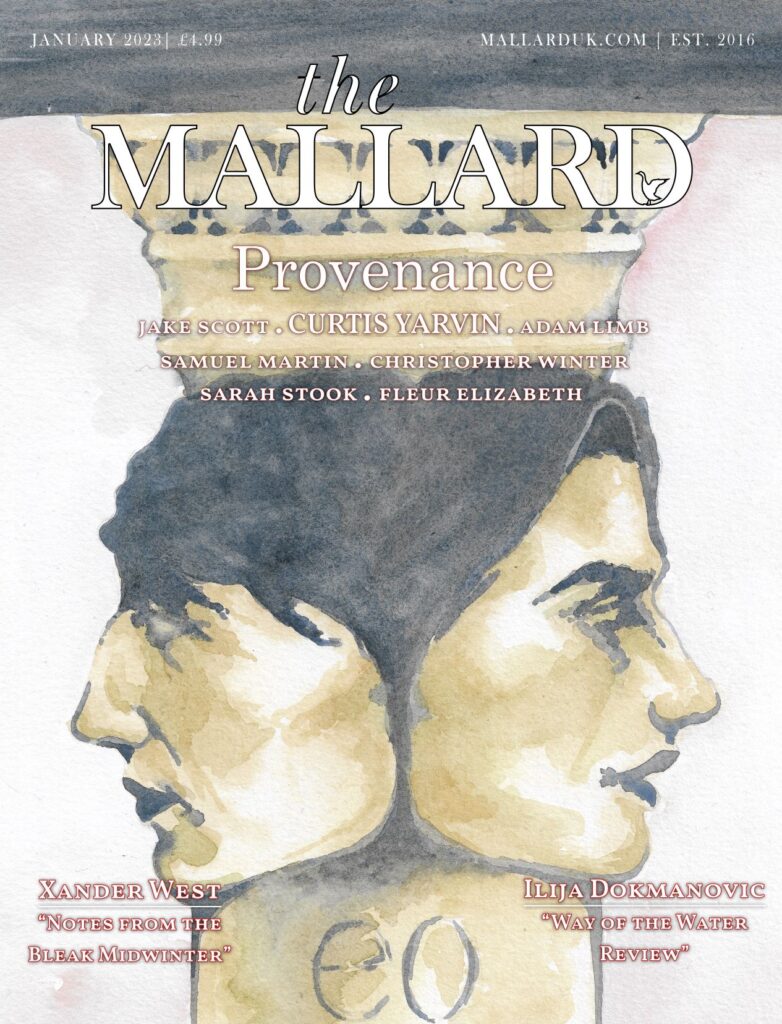Among the first plays I often assign to my teenage tutorial students is Much Ado About Nothing. Written somewhere in 1598-1599 and within a year of Henry V, Julius Caesar, and As You Like It, the play shows Shakespeare as by then a master of Comedy and features several tropes that exemplify the genre. The would-be disastrous elements that might threaten tragedy—the plot to deceive Claudio by soiling Hero’s name, the apparent death by grief of the heroine, the turning of brothers-in-arms against each other—are kept safely within the realm of Comedy via ironic backstops—the fact that the miscreants are already captured before the terrible wedding scene, the dramatic irony that the whole mess might have been cleared up if Leonato had stopped to listen to the constables’ report or if Dogberry knew the words he was using, &c.
Much Ado’s consistently exemplifying the upside-down nature of Comedy—a masquerade allowing characters to speak honestly, a pair of fake wooing scenes that leads to confessions of real love, a misunderstanding on the constables’ part that leads to correct apprehension of the villains—all make it my favorite of Shakespeare’s comedies. Just as I use it as my students’ inaugural Shakespeare, I usually recommend Much Ado to people who want a decent entry into Shakespeare outside of the classroom, especially if they can find a good production of it.
In addition to Shakespeare’s reworking of familiar tropes in new ways, readers and audiences will find in Much Ado another staple of Elizabethan Comedy: bawdy jokes. Within the first few lines, banter of a specific strain is introduced that underscores and arguably provokes the main conflict surrounding Claudio and Hero: that of cuckoldry. After some initial exposition of the recent battles by a messenger to the local governor Leonato (as well as a bit too much protesting on Beatrice’s part about a Signior Benedick), the soldiers show up, and the preeminent Don Pedro notes Leonato’s daughter, provoking the lewd joke and theme:
Don Pedro:
I think this is your daughter.
Leonato:
Her mother hath many times told me so.
Benedick:
Were you in doubt, sir, that you asked her?
Leonato:
Signior Benedick, no; for then were you a child.
Don Pedro:
You have it full, Benedick; we may guess by this what you are, being a man.—Truly, the lady fathers herself.—Be happy, lady; for you are like an honorable father.
Along with the casual bombast that unites the men (in which Beatrice soon partakes with as much alacrity as they), there is a suggestion of Benedick’s reputation as a supposed worrier of husbands. Whether or not this actually is his reputation and character (doubtful, as we’ll see) or whether it is merely a ribald compliment by a man too old to have participated in the recent action, it establishes Benedick as synonymous with the play’s one-up-manship and humorous outrage, often at the expense of women—here, the joker’s dead wife.
And there’s the rub, at least for modern readers: can we enjoy a play that is built, from incidental banter to entire plot structure, on a suspicion of women? Furthermore, are we allowed to compass—and, God forfend, enjoy—a man like Signior Benedick?
No less than Shakespeare’s Globe has taken up the first question in an examination of the play by Dr. Miranda Fay Thomas, whose treatment is well done. Using Beatrice’s cry of “O God, that I were a man!” as a jumping-off point, Thomas explores the recourses available to men and not women through the play, from the initial male bonding to “the ability to take personal revenge on offenders like Claudio, openly defy father-figures like Leonato, or even simply to fall in love with a person of her choosing and for her affection not to be seen as weakness, nor her sexual desires be used as evidence of her inconstant character.” The article continues through an examination of possible reasons for the play’s focus on the men’s apparent insecurity; “the very fact that women can hurt them emotionally,” Thomas argues, “is a chink in their armour that they do not want to be exposed.” This theme, of course, can be found throughout the play, a fact of which Thomas argues Shakespeare, whom she demarcates from his characters, was conscious, using as he does the imbalance of female characters (notably played by men at the time) “to his advantage by allowing us to see how vulnerable women like Hero and Beatrice could be in Elizabethan society.”
Though I don’t share all her interpretations of either the play itself or of today’s society, I believe Dr. Thomas’s argument worth the read, and one that, unlike some takes, does constructively add to the discourse. The broader critique of Much Ado along these lines, if undertaken to add to rather than subtract from our enjoyment of the play and if one avoids substituting mere criticizing for literary criticism, is a legitimate and fruitful one—and, in fact, jejune to the text.
The play, itself, examines the “battle of the sexes” tropes of Comedy, though I think ultimately to edify and expand the genre. While I don’t believe for a second that Shakespeare’s primary goal as a writer was social critique, the entire structure and tension of several of his comedies rest on some kind of imbalance between men and women that must be resolved by play’s end, and he milks the dramatic potential of said imbalances for all they’re worth. Much Ado would be boring if Beatrice weren’t more than equal to Benedick—who, we should note, is usually the butt rather than head of the play’s jokes—and much of the play’s ado could have been spared had the men simply listened to the women (a common theme in comedy that venerates both sexes and their respective complement). So, if there is what we’d today call sexism in the play, it does not necessitate that we vilify the whole thing, itself, as sexist. Indeed, the way Much Ado works out undercuts the soldiers’ suspicion of women; such insecurity as is veiled in the above joke and the broader plot ends up doing more harm than good to the men, and is eventually chastised—a formula Shakespeare reused again more seriously in The Winter’s Tale, among others.
However, we are left with the question of what to do with Benedick. To first-time audiences, Benedick would be the obvious source of the play’s supposed misogyny. Besides the low-hanging fruit of his name (full pun intended—as Shakespeare meant such things to be!), his persona of being too good for most women and living proudly as a bachelor lends him to modern castigation.
In Act II, Scene 3, Benedick soliloquizes:
I do much wonder that one man, seeing how much another man is a fool when he dedicates his behaviors to love, will, after he hath laughed at such shallow follies in others, become the argument of his own scorn by falling in love…May I be so converted and see with these eyes? I cannot tell; I think not…One woman is fair, yet I am well; another is wise, yet I am well; another virtuous, yet I am well; but till all graces be in one woman, one woman shall not come in my grace. Rich she shall be, that’s certain; wise, or I’ll none; virtuous, or I’ll never cheapen her; fair, or I’ll never look on her; mild, or come not near me; noble, or not I for an angel; of good discourse, an excellent musician, and her hair shall be of what colour it please God.
One’s initial response, nowadays (to our absolute peril), might have to be an at least prudent, defensive cringe on Benedick’s behalf against his own words. With the speech’s objectification, impossible beauty standards, fat-shaming, slut-shaming, ableism, &c, one can imagine the modern response. Yet, to the student or prospective audience member who would question whether we should laud such a chauvinistic, misogynistic, ableist, probably racist character, I’d say yes—because I don’t think he’s any of those things.
One general piece of wisdom is that when Shakespeare hands us a foil, be it a sword or a character dichotomy, we should pick it up. Benedick’s words—indeed, his entire character throughout the play—must be measured against Claudio. Before the metaphysical battle in 19th-century art and literature between Romanticism and Realism, Shakespeare had already staged the fight in several of his plays and poems; in Much Ado, it can be seen in Benedick and Claudio’s contrasting approaches to love.
Like many other romantics in Shakespeare, the inexperienced Claudio is taken away by his passion for Hero. While he arguably has the flimsy excuse of being new to this sort of thing, several aspects of his behavior point to the shallowness of his passion. Besides the fact that much of his language regarding Hero is that of commodity and trade, Claudio is just as easily led out of love as he was into it—a function of his romance’s being, from start to finish, based on externals. If we didn’t already know it, the play, itself, shows us such things can mislead for both negative and positive effects; in lieu of a play-within-a-play we are even treated to a masquerade that serves as a microcosm of the play and concretizes several of its core themes. Although the blame for Claudio’s rejection at the wedding ceremony explicitly and legally belongs more to Don John and Boracchio’s deception than to Claudio, the young romantic who leaves himself most vulnerable to passionate love nonetheless causes much harm by it.
This is a far cry from the supposedly woman-hating Benedick. For all his defensiveness against romance—and I do believe it is a defensiveness, a control and limit around an existing vulnerability, as Dr. Thomas suggests above, though one I think constructed as much to protect women from his own actions as himself from theirs—Benedick causes very little anguish in the play. Not until his conflict, the quintessential questioning of that venerable dictum “Bros before hoes,” is concretized by Beatrice’s requirement that loving her means killing Claudio, is there any real possibility of Benedick’s causing pain to a woman. Even then, the bashful man who declares his love for Beatrice is very different from the one who previously enumerated the terms of his proud but stagnant bachelorhood (the embarrassing, quickening changes brought by love being another core trope of Comedy).
Examined again with his later humility in mind, the speech reveals that he is not as sure against love as he might wish to seem; leaving room for the scene’s humorous extemporizing, he has his list of traits ready. Furthermore, anyone who knows the blindness of love qua comic trope and has been paying attention can see that he is describing, for the most part, Beatrice, herself. “Fair…wise…virtuous…mild [(eh, can’t win ’em all)]…noble…of good discourse…” He has already admitted most of these about the woman before his notorious monologue. If he doesn’t have her consciously in mind, his subconscious is at least primed for the scene’s later ploy by the rest of the men to have him overhear words of Beatrice’s affection.
To the modern reader or student, I would submit that far from hating women Benedick actually respects both them and himself enough not to mislead them. Further, I don’t believe he is as uninterested in them as he makes out—for consider how quickly he is directed towards Beatrice. One cannot turn an engine empty of fuel. However, his shortsightedness aside, he apparently knows himself and what it will take to make him genuinely committed, not just in name like Claudio. I’d even read his high standards as a confession of a knowledge of his own passion, which he has wisely and philogynically kept controlled behind an off-putting mask of bravado and bachelorhood—a veritable Elizabethan St. Christopher! Perhaps that’s a bit far. Nonetheless, brash and arrogant he may be, but he’s not the one who ruins Leonato’s daughter’s wedding day (I write this as a new father of a daughter far prettier than I was prepared for).
It may seem contradictory to hide a respect and love for women behind a mask of brash misogyny; yet, it is not the only time Shakespeare uses the ploy. The oft-maligned Petruccio, with a more blatant misogyny than Benedick’s, mimics and turns the tables on Kate’s shrewish misandry and, in Dr. Peter Saccio’s words in his excellent lecture series on Shakespeare, thereby releases her from said misandry and “teaches her to play.” Or, consider Hamlet’s much more vicious and tragic rejection of Ophelia, which he, as prince, must arguably do for her own good (though, in my opinion and his mask of madness aside, Hamlet is more a Claudio than a Benedick, and, at the risk of channeling Polonius, I wouldn’t want him near my daughter). Finally, for a dramatized examination of Prince Hal’s mask, read the Prologue to my novel Sacred Shadows and Latent Light.
In a time where even the mention of certain words, concepts, or perspectives can lead to the extirpation of an artist or his or her work, the lesson of Benedick bears stating explicitly: yes, characters do not equal the author, but neither may our shallow interpretations of characters equal the actual character. Forgive my being anachronistic and offering yet more unasked-for wisdom for reading his writing, but if Shakespeare sets up a Chekov’s gun (or a Leonato’s joke, as it were), it will go off—or be undercut and nuanced—by play’s end. The outrage in Much Ado should not be read as misogyny for its own sake, nor should masks of things like misogyny, conscious or unconscious, be taken for the real thing; rather, the low view of women sets up for the comic treatment of masculine bravado—which, in the form of Benedick and the revealed depths of his character, bashfully wants to respect, protect, and be loved by the very femininity it warily eschews.
The remedy, to further take something from Nothing, is to trust that Shakespeare (and, dare I say, other authors of the canon) and his characters have more depth than we can initially see. Beatrice and Benedick cure each other of their respective shrewishness and bachelorhood; may it not be that learning to enjoy characters such as they and works such as Much Ado, would cure modern interpretations of their own mask of love and philanthropy, which, like that of Claudio or of Don John, may very well hide a much deeper misogyny?
This is not to say we should avoid legitimate criticism (though, again, literary criticism =/= merely criticizing the perceived faults of a work), but such examination, in addition to seeking to build our knowledge for present and future readers, should approach works directly yet humbly. As I have noted in previous pieces, authors like Shakespeare already contain in their works and answer many of the critiques we might make.




